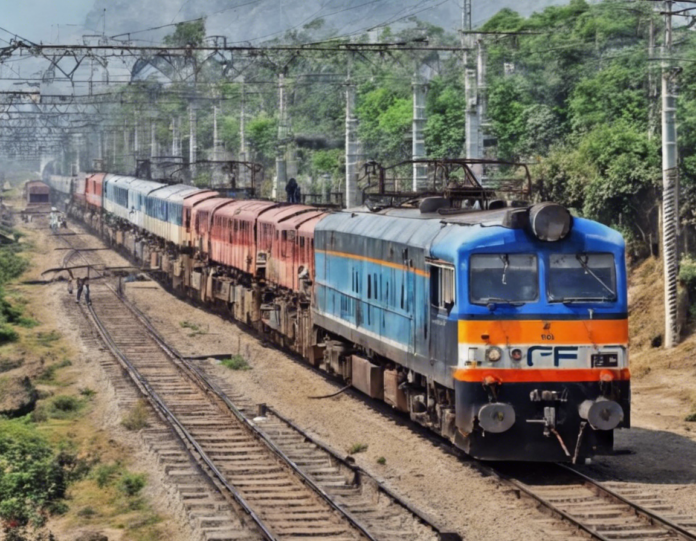Have you ever booked a train ticket in India and come across the abbreviation CNF? If you have, you may have wondered, “What does CNF stand for?” CNF, in the context of railway bookings in India, stands for “Confirmed.” When you see CNF on your ticket, it means that your seat or berth has been confirmed for the journey. Understanding the significance of CNF status, as well as the nuances of Indian railway reservations, can help make your travel experience smoother and more enjoyable. In this comprehensive guide, we will delve into the concept of CNF in railway bookings, its implications, the booking process in Indian Railways, and tips to navigate the reservation system effectively. Let’s explore this vital aspect of train travel in India in detail.
What is CNF in Indian Railway Bookings?
In Indian Railways, CNF is the abbreviation for Confirmed. When you book a train ticket and the status shows CNF, it means that your seat or berth on the train has been confirmed. This confirmation is crucial as it ensures that you have a definite space on the train for your journey.
Implications of CNF Status:
-
Assured Travel: Having a CNF status means that you have a guaranteed seat or berth on the train. You do not have to worry about being on the waiting list or not having a confirmed space.
-
Seat Allocation: With a CNF status, you will be assigned a specific seat or berth number which will be mentioned on your ticket. This helps in avoiding any confusion or last-minute hassles regarding seating arrangements.
-
Ticket Validity: A CNF ticket is valid for travel, and you can board the train with the assurance that you have a designated space for the journey.
Understanding the Booking Process in Indian Railways:
Booking a train ticket in India can be a daunting task due to the vast network of trains, numerous classes of travel, and the high demand for tickets. To comprehend the CNF status and the overall booking process, it is essential to understand how reservations work in Indian Railways.
Reservation Classes:
Indian Railways offers various classes of travel to cater to the diverse needs of passengers. Some of the common classes include:
-
Sleeper Class (SL): A budget-friendly class with basic amenities like berths for sleeping.
-
AC Classes: These include classes like AC 3 Tier, AC 2 Tier, and AC First Class, which provide air-conditioned accommodations with varying levels of comfort.
-
General Class: Open seating class with no reserved seats, primarily used for short-distance travel.
Types of Tickets:
-
Confirmed (CNF): As discussed earlier, a confirmed ticket ensures a definite seat or berth on the train.
-
RAC (Reservation Against Cancellation): In RAC tickets, you are guaranteed a seat but not a full berth. You might have to share your berth with another passenger.
-
WL (Waiting List): When all the seats are full, passengers are placed on a waiting list. As other passengers cancel or their tickets are not confirmed, the waitlisted tickets move up the list.
-
TQWL (Tatkal Waiting List): A separate waiting list for Tatkal tickets, which are booked for travel at short notice.
Tips to Secure a CNF Ticket:
-
Book Early: Tickets are usually released 120 days in advance, and booking early increases your chances of getting a CNF ticket.
-
Opt for Popular Trains: Trains with high demand are more likely to have tickets moving from WL to CNF due to cancellations.
-
Use Premium Tatkal: The Premium Tatkal scheme offers dynamic pricing and can be a good option for last-minute bookings.
Frequently Asked Questions (FAQs) About CNF in Indian Railways:
- What should I do if my ticket status remains on the waiting list?
-
If your ticket is on the waiting list, you can check the status regularly as it might get confirmed closer to the travel date due to cancellations.
-
Can I travel with a waiting list (WL) ticket?
-
It is not advisable to board a train with a WL ticket as it is not considered valid for travel. Make sure to have a confirmed (CNF) ticket before the journey.
-
Is there a chance of my RAC ticket getting upgraded to CNF?
-
Yes, RAC tickets can get upgraded to CNF if other passengers cancel their bookings, freeing up space on the train.
-
How can I check the current status of my ticket online?
-
Indian Railways provides online portals and apps where you can enter your PNR number to check the status of your ticket.
-
What happens if my ticket remains on the Tatkal Waiting List (TQWL)?
- TQWL tickets have less chance of getting confirmed, so it is advisable to have a backup plan in case the ticket does not get confirmed.
In conclusion, understanding the significance of CNF in Indian Railway bookings is essential for a hassle-free travel experience. By grasping the nuances of ticket statuses, reservation classes, and booking strategies, passengers can navigate the Indian Railways system effectively. Whether you are a seasoned traveler or a first-time train passenger in India, being knowledgeable about CNF status and its implications can streamline your journey and ensure a comfortable travel experience.



